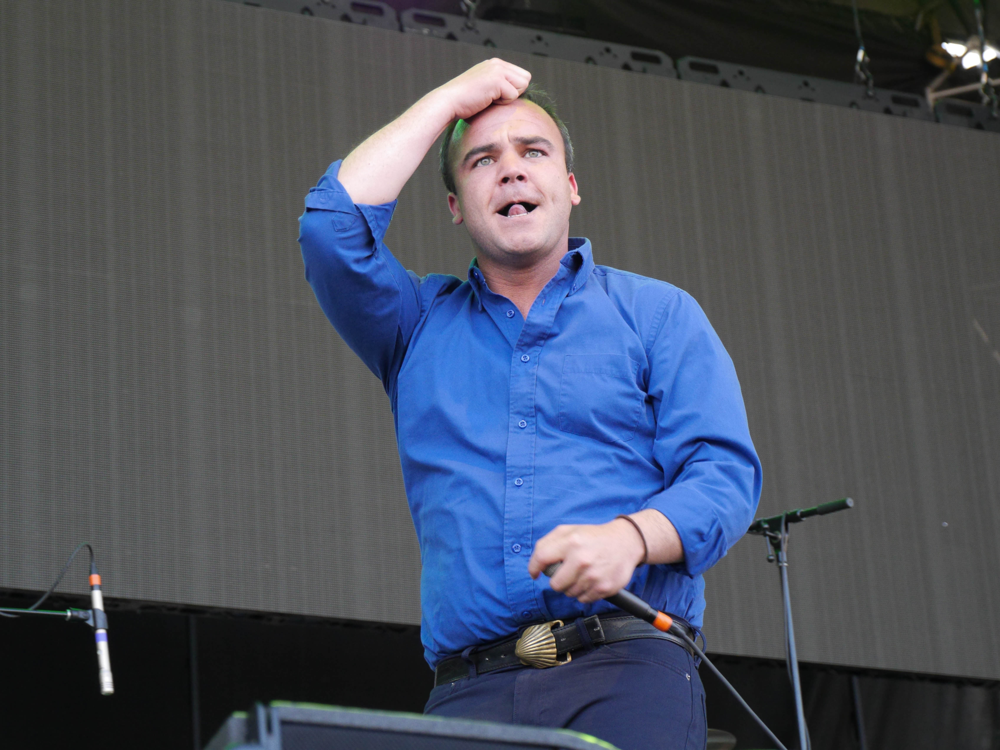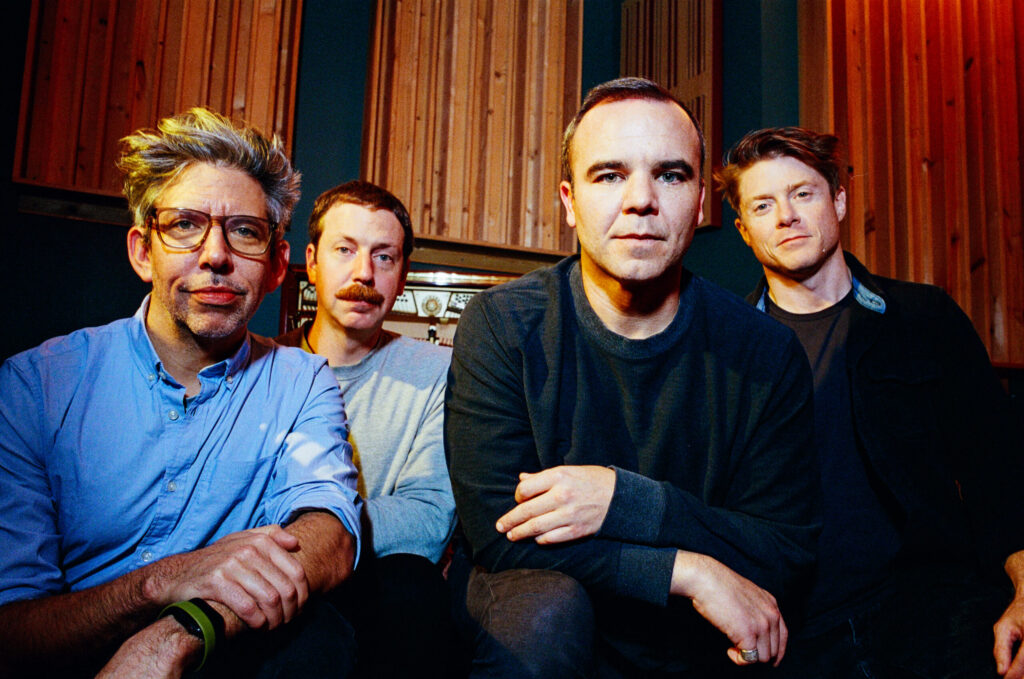
Future Islands have always worn their hearts on their sleeves, and their seventh album People Who Aren’t There Anymore is no exception. This 2024 release finds the Baltimore synthpop outfit diving headfirst into heartache and longing, delivering an emotional gut-punch that few bands do as consistently. At its core, the album is about a breakup. It was written during a time when frontman Samuel T. Herring’s long-distance relationship was falling apart amid pandemic lockdowns. Yet, it somehow manages to feel strangely uplifting at times. The record centers on themes of absence and memory. Rather than sinking into despair, Future Islands transforms that pain into soaring melodies and cathartic, synth-driven anthems. True to form, the music feels just as earnest and passionate as the subject matter.
A Quietly Powerful and Underrated Legacy
To fully appreciate People Who Aren’t There Anymore, it helps to understand Future Islands’ journey. This is a band that spent years as a cult favorite before breaking into wider consciousness with one unforgettable television performance. Their 2014 song “Seasons (Waiting on You)” — and the now-iconic chest-pounding, hip-thrusting dance by Herring on David Letterman’s stage — launched them into a new level of recognition. They went from indie circuit staples to a band capable of selling out multiple nights at major venues.
Despite that viral breakthrough and the acclaim of albums like Singles and The Far Field, Future Islands never fully crossed over into the mainstream spotlight. They remain one of music’s most underappreciated treasures. Their following is loyal and passionate, but their name still doesn’t appear as often as it should in pop culture conversations. That might actually work in their favor. While trends come and go, Future Islands have remained grounded, continuing to create music with soul and sincerity.

Samuel T. Herring’s live performances have always been part of the band’s magic. He pours his entire body and soul into every note, and that intensity translates powerfully in the studio too. On this album, his vocals still carry the same urgency, vulnerability, and theatrical weight. Every lyric is lived-in. Every note feels earned.
Heartache and Hope in Equal Measure
This album chronicles the unraveling of a relationship stretched across distance and time. Herring was separated from his partner by an ocean. Love survived through video calls and hopeful plans until it didn’t. That emotional weight is embedded in nearly every track, creating an atmosphere that is both aching and strangely comforting.
The opener, “King of Sweden,” captures the restlessness and longing that define much of the record. “Give Me the Ghost Back” is a standout, transforming the pain of lingering memory into a driving synth groove. “Peach” follows a similar thread, its lush sonic textures masking the desperation beneath its surface. The song evokes the bittersweet feeling of trying to rekindle something you know is slipping away.
By the time we reach the closer, “The Garden Wheel,” the record has taken us through denial, reflection, and finally resignation. The metaphor of working the earth so much it turns to dust is both beautiful and haunting. It captures the emotional exhaustion of trying too hard for too long. Despite this, the album never feels hopeless. Future Islands weave just enough light into the fabric of these songs to remind us that healing is possible.
One of the strengths of this record is that it doesn’t follow a neat emotional arc. The listener is tossed between sorrow and strength, between yearning and clarity. It feels real. This is the kind of heartbreak that comes in waves, and Future Islands captures that emotional rhythm with honesty and grace.
Signature Sound with Renewed Intensity
Musically, the band leans into their strengths without sounding repetitive. The driving basslines, shimmering synth layers, steady percussion, and Herring’s commanding vocals all return with a renewed energy. Their sound is instantly recognizable, yet refined in subtle ways.
“Say Goodbye” pairs a lively rhythm with lyrics about the disconnect caused by time-zone separation. “Iris” adds a refreshing shuffle to their usual pacing, showing a playful edge. “The Thief” strips things down, allowing a gentler, more contemplative vocal from Herring. It’s a reminder that the band doesn’t always need intensity to be effective.

Throughout the record, the contrast between upbeat arrangements and vulnerable lyrics creates that familiar Future Islands dynamic. Songs like “Corner of My Eye” and “The Fight” are perfect examples. They’re emotional yet energizing. You could cry to them or dance alone in your kitchen, depending on the day.
Still Underrated After All These Years
People Who Aren’t There Anymore doesn’t aim to reinvent Future Islands. Instead, it reaffirms everything that makes them special. They are masters of emotional expression in music. Their consistency, sincerity, and refusal to chase trends have earned them one of the most quietly powerful catalogs in modern music.
In a better world, an album this emotionally resonant would top year-end lists and rocket the band into festival headliner slots. But Future Islands seem content continuing to do what they do best. They create music that matters deeply to those who truly listen. Their art doesn’t scream for attention. It moves slowly and surely, settling into the hearts of its listeners.
For those who are paying attention, this album is another triumph. For those still sleeping on Future Islands, it’s time to wake up.